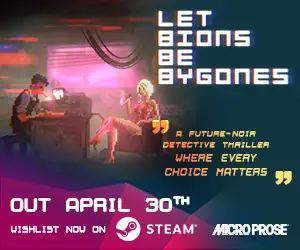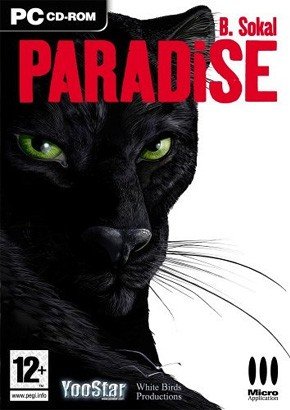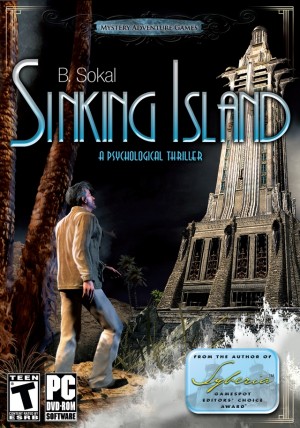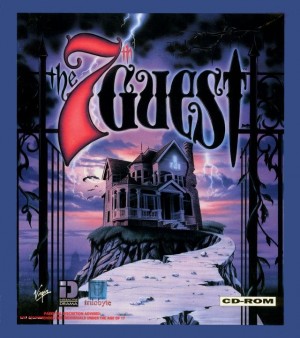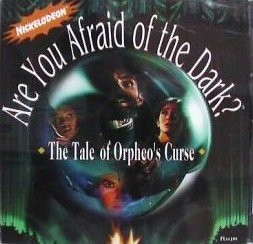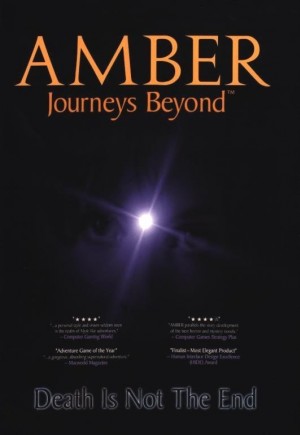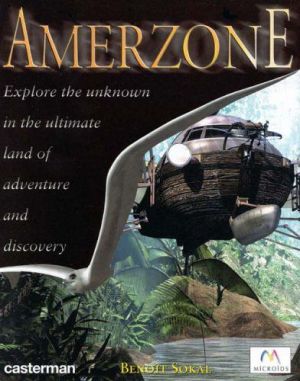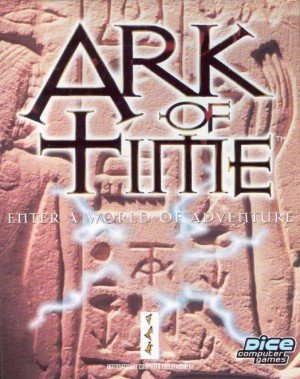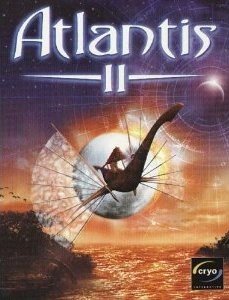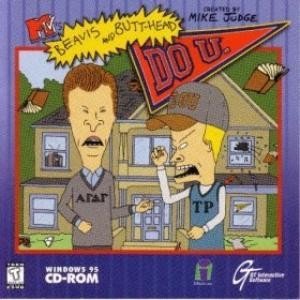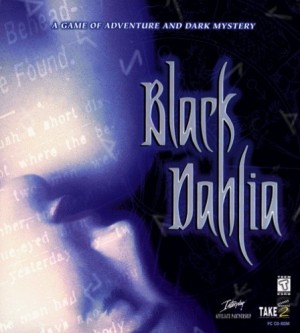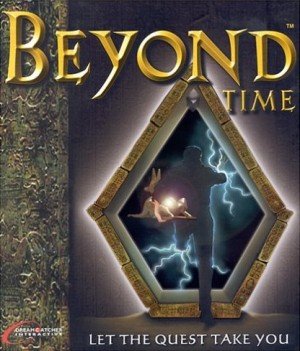White Birds - Michel Bams and Olivier Fontenay interview
After creating the Syberia games at Microïds Canada, author and artist Benoît Sokal established a new studio in France, White Birds Productions. Paradise was the first game developed by the new company, and when we met with White Birds co-founders Michel Bams and Olivier Fontenay at E3, this debut title had only recently been released. Bams and Fontenay shared their experiences with Paradise and offered some surprising glimpses into what White Birds is working on now.
Congratulations on finishing Paradise. How do you feel about it, now that it's out?
Michel Bams: Benoît really wanted this game to be different from Syberia, and I think he managed to imagine and, shall I say, create a story that's clearly different from Syberia. Much darker, more tragedy. I like the story very much, and frankly I always thought that Syberia, in my mind, had a poetic side that I didn't like that much, personally. I prefer Paradise, but I have to say that part of the community has Syberia in mind, and may have been expecting something more poetic than Paradise is. That's okay. I mean, that's what the author does, he tells stories. You have to like it or dislike it, that's the way the story is, and we're happy with the story. I think the story's great.
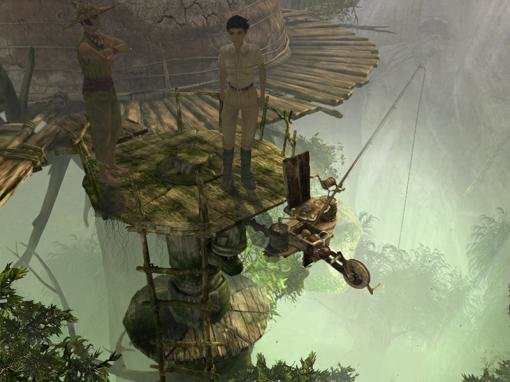
I'm really looking forward to it, but haven't had the chance yet. Too many games came out all at once. Paradise and Dreamfall are the two that spent a year on our most anticipated list.
Michel Bams: We're looking at Dreamfall with a lot of interest because we want to know if this is going to work in terms of sales. It's a game that has a story behind it, but it's real time 3D, with action... we'll see.
Is real-time 3D something you'd toy with?
Michel Bams: Sure. In the adventure field, technology is not something which is driving the games as it is in first-person shooters, where you can add a real technology layer. In the adventure field we believe it's the story which drives the game, and technology comes second, even third after the story. Maybe second is the music, voices, something like that. But still, you have to think that 3D real-time now really starts to offer graphical solutions that make us think that, yes, we will have to make that move one day. Not yet, not yet. The next game is not going to be 3D real-time, it's still going to be 2D.
That's Aquarica?
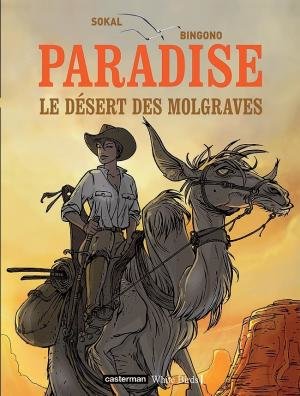 Michel Bams: Nope. But before we move on to the next game, there's something else we want to discuss about Paradise. One of the reasons why we created White Bird productions was that we consider ourselves storytellers, and we want to try to bring the stories to as many media as possible. There are two fields we think we know, video games on one side, and graphic novels on the other, because Benoît is a cartoonist. So Paradise is also a series of four albums published by Casterman, which is one of the leading graphic novel publishing houses, and we've created a label called White Birds to host our games when they are adapted into graphic novels. So Paradise is going to be four albums. The two first are released, the third one is due for the end of this year, and the last one by March of next year.
Michel Bams: Nope. But before we move on to the next game, there's something else we want to discuss about Paradise. One of the reasons why we created White Bird productions was that we consider ourselves storytellers, and we want to try to bring the stories to as many media as possible. There are two fields we think we know, video games on one side, and graphic novels on the other, because Benoît is a cartoonist. So Paradise is also a series of four albums published by Casterman, which is one of the leading graphic novel publishing houses, and we've created a label called White Birds to host our games when they are adapted into graphic novels. So Paradise is going to be four albums. The two first are released, the third one is due for the end of this year, and the last one by March of next year.
Do they follow the four worlds in Paradise?
Michel Bams: Absolutely. The thing is, it's the same story, but it's not the same way of telling it. There are certain aspects in the graphic novel in which you have more freedom than in the video game, and vice versa. For example, there is a tolerance with nudity in the graphic novel that you cannot have in the game because you will immediately be tagged as mature, which means you won't sell.
Will the graphic novels be published in the United States also?
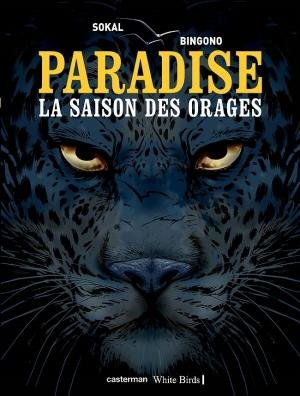
Michel Bams: No. We would like to, but...
Olivier Fontenay: These kinds of books are really rare in the United States. You have lots of comic books, but not this kind of book.
Did Benoît do the art in the books?
Michel Bams: Benoît is not sketching the graphic novels. Benoît does graphic novels on his own; he has a recurring character which has nothing to do with what he does in games.
Olivier Fontenay: In fact, he's working as much on the Paradise graphic novels as on the game. He wrote the scenario, the storyline, and then he's acting as the art director most of the time for the game team, but also for the graphic novels.
Michel Bams: The sketcher, Brice Bingono, who made all the sketches in the graphic novel, has seen very, very little of the game. Benoît wanted him to figure it out for himself. For example, the main character is quite different, the way she is presented in the game and the way she's presented in the graphic novel. So yeah, Paradise is... we haven't completely turned the page, because we are really now on the sales side of it, but in terms of creation and production, it's done. Now the future is more what we're thinking of in terms of next games, and to answer your question, no, it's not Aquarica. Aquarica is one of the projects we're working on, and we have not concluded whether it's going to be 2D or 3D. We want to give ourselves a little bit more time. We have the story, the scenario is written, we know what this game is going to be about, we know who the characters are, what they're going to do. We're just thinking of whether it should be 3D or not.
Olivier Fontenay: We're working right now on a 3D real-time prototype, internally, to see if we can meet what we expect of this type of technology for such a game. We're really not sure if this prototype will be exactly what we want. We will make a decision in July, probably, if this is exactly what we want to reach, especially Benoît. Benoît is very excited by the idea of working in real time graphics, but he wants to make sure he gets the proper tools. So we're not sure yet.
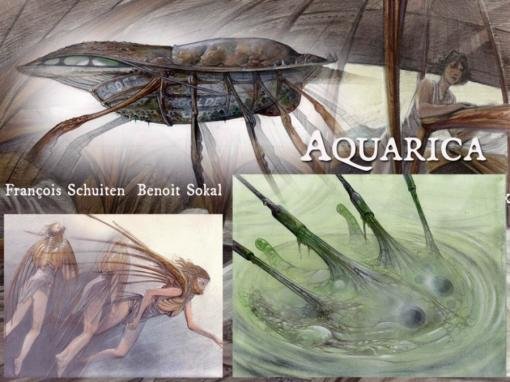
That's an interesting process. We saw another game yesterday [Dead Reefs] that started out in 2D and they decided it wasn't working in 2D so they switched it to 3D. It hadn't occurred to me that you make those kinds of decisions midway through.
Olivier Fontenay: There's two sides of that. The graphical side is a question of quality. Are we able to have the same level of detail and the same attention to detail in 3D as in 2D? The answer is maybe not, but the general atmosphere is probably much more involved than the exact amount of detail. We also have to manage something a bit different—I don't know if you remember Amerzone, which was in this 3D-like environment, and then one day we decided to make Syberia, with completely different tools that were brand new at that time, using 2D backgrounds with 3D characters. At that time, a lot of people disliked our choice. There were many, many people on the forums saying "Oh, it's not like Amerzone." Now with Paradise, we've experienced exactly the same thing. In fact, Benoît has a lot of fans who are pretty conservative. Every choice is a really tough choice for us to make, so we want to be really sure of all choices.
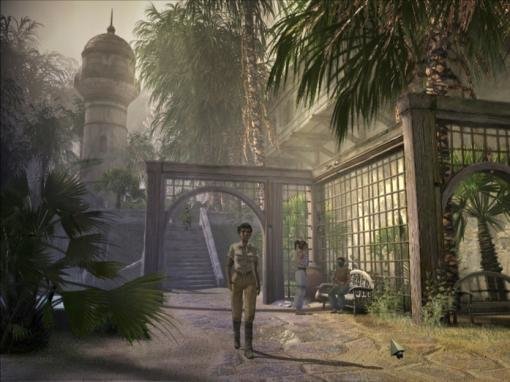
That's not just artistic, too, because it affects how you control the game, your whole experience with the game.
Olivier Fontenay: Absolutely. It's conceptual. The main issue for us is about concept and if we are able to deliver an interesting experience for the player. It's been, I think, five years since adventure games came out with real-time graphics, the Myst series and some other games, and I can't remember one which has been really convincing.
Michel Bams: Yes, which is why we are watching Dreamfall with interest. So that's Aquarica, which is also a project we want to... Benoît is really dreaming, and he convinced us that his dream could be a movie. So we really are hoping to do that. It's another way of financing things. So, we go little by little. And now we are working on Benoît's next game, which is called Sinking Island, on which we have said very little.
Tell us about Sinking Island.
Sinking Island is the first of a series. Benoît wants to have, on one side, adventures like Amerzone, Syberia, Paradise, and Aquarica, which are about fantasy and animals. And on the other, he wants to do something which is closer to what he does in graphic novels, a recurring hero in detective stories and murder cases. So Sinking Island introduces a new character, a man called Jack Norm, who will hopefully, if the first game is successful, be acting in various video games. It's a detective story, and the principle is that every story is set in a "closed" place, in which a murder is committed, and you have to guess why, by whom. This will be the principle of the games. Now, the first one, Sinking Island, takes place on a small tropical island. On this small island there is a billionaire who builds a hotel. Have you seen pictures of this crazy hotel in Dubai? It's a kind of tower, similar to ours. The interesting part in the game is that things are disappearing; the island is sinking underneath the weight of the tower, because the architects made it too heavy. It's one of these islands built on coral, and it just crushes under the weight of the tower. So the first day, if you don't collect the clues, they disappear, because water is spilling in. You have a limited amount of time, three days in simulated real time, and if you can't solve the crime, game over.
Olivier Fontenay: It's really the opposite of the classical adventure game, where day by day you have access to a wider area. It's exactly the opposite.
When you say simulated real time, what does that mean?
Olivier Fontenay: Meaning that the game is going to be played probably in six to seven hours, and if you fail, you fail. You die. You'd have to restart, but not from the beginning. You will automatically go back to a checkpoint that you will have reached before. There will probably be two checkpoints each day.
So it's not minute-for-minute real time.
Michel Bams: No. The interesting thing from a graphical point of view in Sinking Island is to have this contrast between a kind of art deco tower, which is a tower like 200 meters high, and this tropical environment with a lagoon and palm trees.
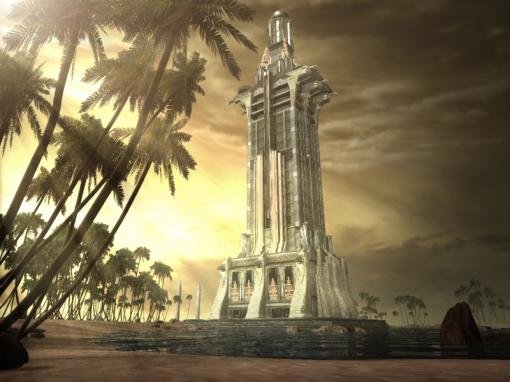
Will this game definitely have prerendered 2D backgrounds?
Michel Bams: Yes.
Does it contain fantasy elements?
Michel Bams: No.
Olivier Fontenay: It's a very realistic atmosphere in this game.
Michel Bams: But the plot is strange.
Yeah, the island sinking is a little weird.
Olivier Fontenay: It's not that bizarre. The reality is that there are some islands that are really sinking.
Michel Bams: They think that if the temperature continues to rise, some of these islands will just disappear. And on the other side there is this hotel in Dubai, a high tower, so it's more things that are taken and mixed together to create something that looks like fantasy but in fact could be true. In Benoît's games, you're always close to reality.
That's what helps you buy into the fantasy, you don't realize you've crossed over from reality to fantasy.
Michel Bams: [Showing concept character art at E3, not yet publicly available] This is Jack Norm, a character who's about 38, ex-policeman now a private investigator, drinks, not necessarily an athletic man but able to run or to fight if needed. But he will first think, before trying to use violence. He's not a pure Columbo-like man; if needed he might use force.
Does that mean there's going to be fighting in the game?
Michel Bams: No.
When is it scheduled to come out?
Michel Bams: Spring 2007. We want to use the same principles of 2D backgrounds with 3D characters and have as many things as possible moving on screen—birds, water. We'll add wind in the trees, things like this to bring life. We want each screen to be animated with two or three things like that.
Is the production time shorter than on Paradise?
Olivier Fontenay: We started pre-production on this in November, and we started production on the end of January. We have a rather classical twelve months of production, so it's probably two or three months less than Paradise.
Michel Bams: Paradise is the first game that we made as White Birds, so we had to set up the team, and there's always an experience curve that you have to build up. Now the team is there, there's two separate teams, so things are more on their way, allowing us to produce it in a shorter time.
Are these going to be shorter games, because they're part of a series?
Michel Bams: We don't want the player to be counting the screens, saying "Okay, this game is a 165 screen game, while this one was 172." We want to provide the player pleasure time, because you buy a game, it's expensive, you have to have time with it. If you end it after two hours, that should be the price of a movie ticket. So in terms of length of gameplay, it will be about the same time as Paradise; even more, because there will be more puzzle solving. It will probably be a little higher in terms of difficulty.
Olivier Fontenay: There is also something a bit different, but it's a bit early to talk about it, in the general interface of the game. You will, as usual, direct the 3D character, you will collect some objects, speak with various people, but there is something additional that you have to do to really solve the murder mystery. There will be 12 different questions that you have to answer using what you have collected within the game, in a different interface. But it's really a bit too early to say more.
Interesting. So it's really a classic detective murder mystery.
Michel Bams: Absolutely, that's the idea. In fact, the whole idea was to add Benoît's quality into a classical detective story. We hope that the storyline is also... I mean, one of the classical aspects of these games is always that what seems very obvious is not. The story's really tricky. The scenario is really unexpected.
I have one general question for you. Benoît gets all the attention—I honestly don't know who else on the team does what. How do you feel about that?
Michel Bams: Benoît does almost everything. We just watch him work. [laughter] White Birds is also Benoît's company. I mean, there's four of us, we decided to create the company together, and Benoît is one of the four. He's the author of the company. It doesn't mean that every White Birds Productions game is going to be Sokal, because he has limited time. It's really that with Paradise and the Sinking Island / Jack Norm series, he wishes to be author. When he's author of the game, he writes the scenario, he does lots of preparation sketches, and he supervises the whole rest of the production.
Olivier Fontenay: He works as much as the director of a movie. He's there every day working with the team, managing the team, the artists, the storyline, as much as the director of a movie. He's the artist. We are very proud of the game, all of us, the whole team is very proud of the game, but the whole team also knows very well what Benoît is doing exactly to create this game. When you are on a Spielberg movie, everybody works on the movie, doing the set, the lights, the actors, but this is a Speilberg movie. This is a Benoît Sokal game, but there were more than 35 people involved full-time on Paradise, Benoît being one of the 35 people.
Adventure Gamers would like to thank Michel and Olivier for taking the time to answer our questions at E3.



